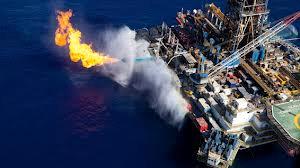Ammon News - The conflict of interest facing gas giants Noble Energy and the Delek Group – the firms that control Israel’s two large offshore natural gas reserves – may come to a head amid a pending deal to sell natural gas to the Jordanians.
Jordan is looking to buy natural gas from Israel and is negotiating with the U.S.-based Noble Energy. But Noble represents both the Tamar gas field, which recently went online, as well as the larger Leviathan field, which is slated to be operational by 2017.
Noble has a 36% share of Tamar, and a 40% share of Leviathan, while the Delek Group owns 31% of Tamar and 45% of Leviathan.
The two large gas firms apparently want the Jordanians to buy gas from Leviathan, since Leviathan still needs to sign major contracts to ensure it has the finances to be developed, and because providing gas from Tamar would require a larger investment in that reserve’s infrastructure.
But this strategy has raised opposition from the minority shareholders in Tamar, Isramco (29%) and Alon Gas (4%), which would like to see their holding win the lucrative, billion-dollar contract.
The deal with Jordan is likely to garner a price per unit that is 20% higher than in the Israeli market.
Last month, Isramco and Alon Gas petitioned the High Court of Justice against the government’s revised model for gas exports, which shifted part of the export quota from Tamar to Leviathan. Delek and Noble did not join the suit.
Jordan is believed to be seeking 2.5 billion to 3 billion cubic meters of gas a year, on top of the gas that Tamar is slated to supply the factories on the Jordanian side of the Dead Sea. Under that contract, expected to be signed within the next few weeks, Tamar would provide the factories with 400 million to 500 million cubic meters of gas a year for 15 years, for a total of $2 billion. The Jordanian customers would receive gas only if the pipeline has excess capacity after Israeli customers receive their supply, meaning most of the gas would be supplied during off-peak hours.
Under that project, the Jordanian factories would be connected to the Israeli pipeline, which currently goes as far as Sdom, by 2016. That project is expected to cost 100 million to 150 million shekels, to be borne by the partners in the gas reserve.
Connecting to Jordan’s main gas distribution pipeline would be even more complicated and costly.
Jordan gets 88% of its energy from natural gas, and currently receives 3 billion to 4 billion cubic meters of natural gas from the Egyptians. However, the Egyptian gas has become irregular since the fall of President Hosni Mubarak in 2011, and Jordan has absorbed $5.6 billion in losses as a result.
*Israeli Agencies
